
No one can deny how September 11, 2001, has altered our understandings of "Peace" and "Justice" and "Civil Conflict." Those have become words with startling new life in our vocabularies. Yet "making" peace and "doing" justice must remain challenges that are among the highest callings of humanity—especially in a terror-heightened world. Nigel Biggar, Christian ethicist and editor of this now more than ever "must read" (Choice) volume, newly expanded and updated, addresses head-on the concept of a redemptive burying of the past, urging that the events of that infamous date be approached as a transnational model of conflict-and suggesting, wisely and calmly, that justice can be even the better understood if we should undertake the very important task of locating the sources of hostility, valid or not, toward the West.
Burying the Past asks these important questions: How do newly democratic nations put to rest the conflicts of the past? Is granting forgiveness a politically viable choice for those in power? Should justice be restorative or retributive? Beginning with a conceptual approach to justice and forgiveness and moving to an examination of reconciliation on the political and on the psychological level, the collection examines the quality of peace as it has been forged in the civil conflicts in Rwanda, South Africa, Chile, Guatemala and Northern Ireland.
There are times in history when "making peace" and "doing justice" seem almost impossible in the face of horrendous events. Those responses are understandably human. But it is in times just like these when humanity can—and must—rise to its possibilities and to its higher purposes in order to continue considering itself just and humane.
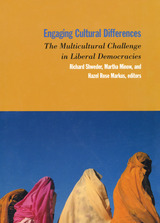
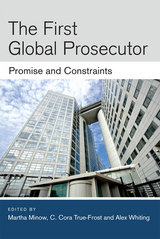
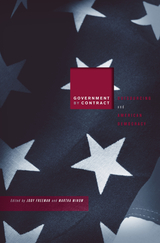
The dramatic growth of government over the course of the twentieth century since the New Deal prompts concern among libertarians and conservatives and also among those who worry about government’s costs, efficiency, and quality of service. These concerns, combined with rising confidence in private markets, motivate the widespread shift of federal and state government work to private organizations. This shift typically alters only who performs the work, not who pays or is ultimately responsible for it. “Government by contract” now includes military intelligence, environmental monitoring, prison management, and interrogation of terrorism suspects.
Outsourcing government work raises questions of accountability. What role should costs, quality, and democratic oversight play in contracting out government work? What tools do citizens and consumers need to evaluate the effectiveness of government contracts? How can the work be structured for optimal performance as well as compliance with public values?
Government by Contract explains the phenomenon and scope of government outsourcing and sets an agenda for future research attentive to workforce capacities as well as legal, economic, and political concerns.
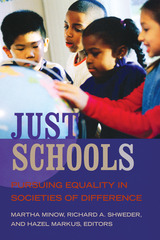
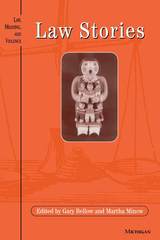
The essays in Law Stories are all first-person accounts of law problems and the way they were handled, written by lawyers involved in the problems. They offer the voice and insight of the self-reflective practitioner. As such they provide us with a dimension missing from many third-person accounts of cases, a layer of emotion and perspective on legal institutions experienced by people caught or working within them.
Focusing on cases arising in public interest practices, the stories deal with problems arising from child custody, parental rights in a Head Start program, the consequences of large corporate bankruptcy for the corporation's retirees, juvenile crime, unemployment benefits, the rights of a victim of crime, the rights of welfare recipients, and the rights of small shareholders. These stories raise a variety of questions, including the nature and extent of the lawyer's role, the way the system listens to certain kinds of stories told in certain ways and refuses to hear other stories, how participation in the legal system affects the identity of those who are involved in it and how the popular image of law and legal processes differs from the reality depicted in these cases.
This book will appeal to both practitioners and teachers of law as well as social scientists interested in studying the role and place of law in the system.
The contributors include Anthony Alfieri, Gary Bellow, Lenora M. Lapidus, Alice and Staughton Lynd, Martha Minow, Nell Minow, Charles Ogletree, Abbe Smith, Lynne Weaver, and Lucie E. White.
"[Law Stories will] enlighten not only law students but the general and professional public who will find these accounts as compelling as any work of popular fiction. Unhappily, these accounts of law's inadequacy as a vehicle for social justice are not fictions. . . ." --Law and Politics Book Review
Gary Bellow and Martha Minow are Professors of Law, Harvard Law School.
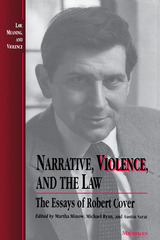
"Robert Cover drew his sources for the authority of law--for its violence, but also for its paideic potential--from the structuring stories that spark our communal imaginations. Literally until the day of his untimely death, his irreplaceably restless spirit was binding itself with the pages of the Midrash, of The Brothers Karamazov, of Billy Budd, Sailor. It is for us now to work also with these--Bob Cover's stories."--Richard Weisberg, Benjamin N. Cardozo Law School, Yeshiva University
"The writings of Robert Cover were usually provocative, sometimes exasperating, but always relevant. In his last years, he concentrated on Jewish sources as well as mystical and Messianic thought. This collection of his articles is a thesaurus of some of his finest writings."--Robert F. Drinan, S.J., Georgetown University Law Center
The late Robert Cover was Professor of Law, Yale Law School. Martha Minow is Professor of Law, Harvard Law School. Michael Ryan is Professor of English, Northeastern University. Austin Sarat is William Nelson Cromwell Professor of Jurisprudence and Political Science and Chair of the Program in Law, Jurisprudence, and Social Thought, Amherst College.

Over the course of his career at Harvard, Morton Horwitz changed the questions legal historians ask. The Transformation of American Law, 1780–1860 (1977) disclosed the many ways that judge-made law favored commercial and property interests and remade law to promote economic growth. The Transformation of American Law, 1870–1960 (1992) continued that project, with a focus on ideas that reshaped law as we struggled for objective and neutral legal responses to our country’s crises. In more recent years he has written extensively on the legal realists and the Warren Court.
Following an earlier festschrift volume by his former students, this volume includes essays by Horwitz’s colleagues at Harvard and those from across the academy, as well as his students. These essays assess specific themes in Horwitz’s work, from the antebellum era to the Warren Court, from jurisprudence to the influence of economics on judicial doctrine. The essays are, like Horwitz, provocative and original as they continue his transformation of American legal history.
READERS
Browse our collection.
PUBLISHERS
See BiblioVault's publisher services.
STUDENT SERVICES
Files for college accessibility offices.
UChicago Accessibility Resources
home | accessibility | search | about | contact us
BiblioVault ® 2001 - 2024
The University of Chicago Press









